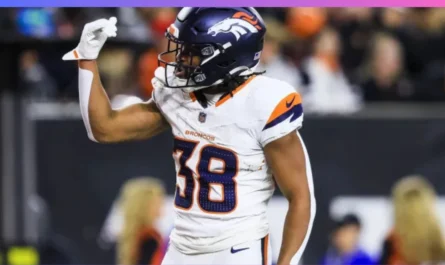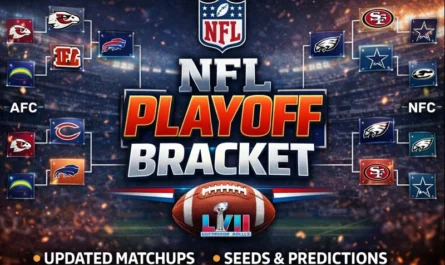The relationship between professional sports and cannabis has been a long and winding one, especially in a league as high-profile as the NFL. For years, the question, “Can NFL Players Smoke Weed?” was met with a resounding and strict “no.” However, in recent times, the landscape has shifted dramatically, leaving many fans and players alike wondering about the current state of the league’s cannabis policy. If you’ve ever asked, “Can NFL Players Smoke Weed?” or pondered the evolving rules, you’re in the right place. This comprehensive blog post will delve into the NFL’s current stance on cannabis, trace the history of its drug testing policies, explore the reasons behind the changes, and discuss what these modifications mean for players today.
A Look Back: The NFL’s Historically Strict Stance on Cannabis
For decades, the NFL maintained a zero-tolerance policy for cannabis. This strict approach was largely influenced by federal laws classifying cannabis as a Schedule I controlled substance, alongside drugs like heroin and LSD. For players, a positive test for THC, the primary psychoactive compound in cannabis, could lead to significant penalties, including fines, suspensions, and even the termination of their careers.
The consequences were severe, and the question, “Can NFL Players Smoke Weed?” was unequivocally answered with punitive action.The league’s testing protocols were robust, involving regular screenings throughout the season and even during the offseason. Players were often subject to random tests, and a single failed test could trigger entry into the NFL’s substance abuse program, which involved more frequent testing and potential disciplinary action.
This strict regime was designed to deter drug use, but it also led to considerable debate about player privacy, treatment versus punishment, and the scientific understanding of cannabis. Many felt the rules were outdated and did not consider the potential therapeutic benefits of cannabis for athletes dealing with chronic pain and injuries. The rigid answer to “Can NFL Players Smoke Weed?” began to face increasing scrutiny.
The Tides Turn: The Evolution of the NFL’s Drug Policy
The conversation around cannabis in the United States has undergone a seismic shift in recent years. With more states legalizing cannabis for medical and recreational use, public perception has softened, and the scientific community has continued to explore its potential benefits, particularly in pain management and recovery. This societal change inevitably put pressure on institutions like the NFL to re-evaluate their policies. The question “Can NFL Players Smoke Weed?” started to take on a new urgency.
The first significant changes began to emerge in the 2020 Collective Bargaining Agreement (CBA) between the NFL and the NFL Players Association (NFLPA). This landmark agreement marked a pivotal moment, signaling a move away from the league’s historically punitive approach. For those asking, “Can NFL Players Smoke Weed?” the 2020 CBA provided a glimmer of hope and a clear indication of a more progressive direction.
Key Changes in the 2020 Collective Bargaining Agreement:
- Reduced Testing Window: One of the most impactful changes was the drastic reduction in the window for THC testing. Previously, players could be tested for cannabis year-round. The new CBA limited testing for THC to a two-week window at the very beginning of training camp. This means that for the vast majority of the season and offseason, players are not subject to cannabis testing. This was a significant step in addressing the question, “Can NFL Players Smoke Weed?”
- Increased THC Threshold: The threshold for a positive THC test was also substantially increased. Previously, a very low concentration of THC metabolites could trigger a positive result. The new threshold is significantly higher, meaning a player would need to have consumed a much larger amount of cannabis to fail a test. This change acknowledges that residual THC can linger in the body and aims to prevent players from being penalized for incidental exposure or infrequent use. It directly impacts how one answers “Can NFL Players Smoke Weed?”
- Shift Towards Treatment, Not Punishment: The new policy emphasizes a more therapeutic approach to substance abuse. Instead of immediate suspensions for initial positive tests, the focus has shifted towards intervention and treatment programs. Players who test positive are now typically referred to a medical professional for evaluation and potential entry into a treatment plan, rather than facing automatic disciplinary action. This reflects a more compassionate understanding of addiction and substance use, moving beyond simply punishing players. This fundamental shift reshapes the answer to “Can NFL Players Smoke Weed?”
- Elimination of Suspensions for Positive THC Tests: Perhaps the most significant change is the virtual elimination of suspensions for positive THC tests. Under the old rules, multiple positive tests could lead to lengthy suspensions, costing players millions in lost salary and potentially jeopardizing their careers. Now, a positive THC test, even a repeat one, is unlikely to result in a suspension unless there are other aggravating factors or a player fails to comply with the treatment program. This is a game-changer for players and definitively alters the answer to “Can NFL Players Smoke Weed?”
So, Can NFL Players Smoke Weed Now? The Nuance Explained
Given these substantial changes, the answer to “Can NFL Players Smoke Weed?” is far more nuanced than it once was. While it’s not a complete free-for-all, the restrictions are significantly relaxed. During the vast majority of the year, players are not subject to cannabis testing. This means that if a player chooses to use cannabis during the offseason, or even during the regular season outside of the two-week testing window, they are highly unlikely to face any disciplinary action from the league. The question, “Can NFL Players Smoke Weed?” is essentially answered with a “yes” for most of the calendar year.
However, it’s crucial to remember that the NFL’s policy, while more lenient, is not an endorsement of cannabis use. It’s a recognition of evolving science, changing societal views, and the importance of player well-being. The league still considers cannabis a prohibited substance during the specific testing window. Therefore, players must still exercise caution and be mindful of their consumption, particularly as training camp approaches.
Furthermore, it’s important to differentiate between the NFL’s policy and federal law. Cannabis remains illegal at the federal level in the United States. This means that even if the NFL allows a certain degree of cannabis use, players are still subject to the laws of the states and jurisdictions where they reside or play. For instance, traveling with cannabis across state lines where it remains illegal could still lead to legal consequences, regardless of the NFL’s stance. This is a critical point when considering “Can NFL Players Smoke Weed?”
Why the Shift? Understanding the Motivations Behind the Policy Change
Several factors contributed to the NFL’s decision to relax its cannabis policy:
- Player Well-being and Pain Management: One of the primary drivers was the growing recognition that cannabis could offer a safer and more effective alternative to opioids for pain management among athletes. NFL players endure immense physical stress and often deal with chronic pain and injuries. Opioid addiction has been a significant concern across the league and in society. Cannabis, particularly CBD (a non-psychoactive cannabinoid), has shown promise in managing pain, reducing inflammation, and aiding in recovery without the same addictive properties as opioids. Many players advocated for the use of cannabis for these therapeutic benefits, pushing the league to reconsider its stance on “Can NFL Players Smoke Weed?”
- Evolving Societal and Legal Landscape: As mentioned, the rapid legalization of cannabis across numerous states put immense pressure on professional sports leagues. It became increasingly difficult for the NFL to maintain a highly restrictive policy when a significant portion of its fanbase and even its players resided in areas where cannabis was legal. The disconnect between league rules and societal norms was becoming too large to ignore. The question, “Can NFL Players Smoke Weed?” was increasingly being asked in a new legal context.
- Advocacy from the NFLPA: The NFL Players Association played a crucial role in advocating for these changes. They represented the players’ interests, highlighting the need for more humane drug policies, particularly concerning cannabis. The NFLPA pushed for a shift from punitive measures to a more health-focused approach, emphasizing treatment and education. Their persistent efforts were instrumental in shaping the new policy regarding “Can NFL Players Smoke Weed?”
- Scientific Research and Understanding: While more research is still needed, the scientific understanding of cannabis has advanced considerably. The distinction between THC and CBD, and their respective effects, is now clearer. This improved understanding helped to dispel some of the long-held stigmas associated with cannabis use, allowing for a more evidence-based approach to policy-making. This scientific progress helped pave the way for a new answer to “Can NFL Players Smoke Weed?”
The Future of Cannabis and the NFL: What Lies Ahead?
The NFL’s current cannabis policy is a significant step forward, but it’s likely not the final destination. As more research emerges and societal views continue to evolve, it’s possible that the league could further relax its restrictions, perhaps even allowing for cannabis use without any testing window in the future. The question “Can NFL Players Smoke Weed?” will continue to evolve.
One area that could see further development is the use of CBD. While the focus of the policy changes has been primarily on THC, many players are already using CBD products for recovery and pain relief. As the understanding of various cannabinoids expands, the league might develop more specific guidelines or even endorsements for certain CBD products.

The NFL’s updated policy reflects a broader trend in professional sports. Other leagues, such as the NBA and MLB, have also moved towards more lenient cannabis policies, recognizing the need to adapt to changing times and prioritize player well-being. This convergence suggests that the era of strict, blanket prohibitions on cannabis in sports is largely coming to an end. The overall answer to “Can NFL Players Smoke Weed?” is trending towards greater freedom.
Conclusion: Can NFL Players Smoke Weed? A New Era
To reiterate, “Can NFL Players Smoke Weed?” is no longer a simple “no.” The NFL has made substantial changes to its drug policy, significantly relaxing its stance on cannabis. While a small testing window still exists at the start of training camp, the vast majority of the year sees players free from the threat of league discipline for cannabis use. The focus has shifted from punishment to treatment, acknowledging the therapeutic potential of cannabis and aligning with evolving societal views.
This new era in the NFL’s drug policy marks a progressive step, prioritizing player health and well-being while adapting to the realities of modern cannabis legislation and understanding. For players, it means greater autonomy over their health choices and potentially a safer alternative for managing the intense physical demands of professional football. For fans, it signifies a league that is more attuned to current science and societal norms. So, the next time you ask, “Can NFL Players Smoke Weed?” remember the dramatic shifts that have occurred, ushering in a new chapter for cannabis in the National Football League.
This evolution demonstrates a clear and progressive trajectory regarding the question, “Can NFL Players Smoke Weed?” The league’s acknowledgment of cannabis as a potential aid for pain management further clarifies the answer to “Can NFL Players Smoke Weed?” This new understanding of “Can NFL Players Smoke Weed?” is a testament to ongoing research and changing perspectives.



